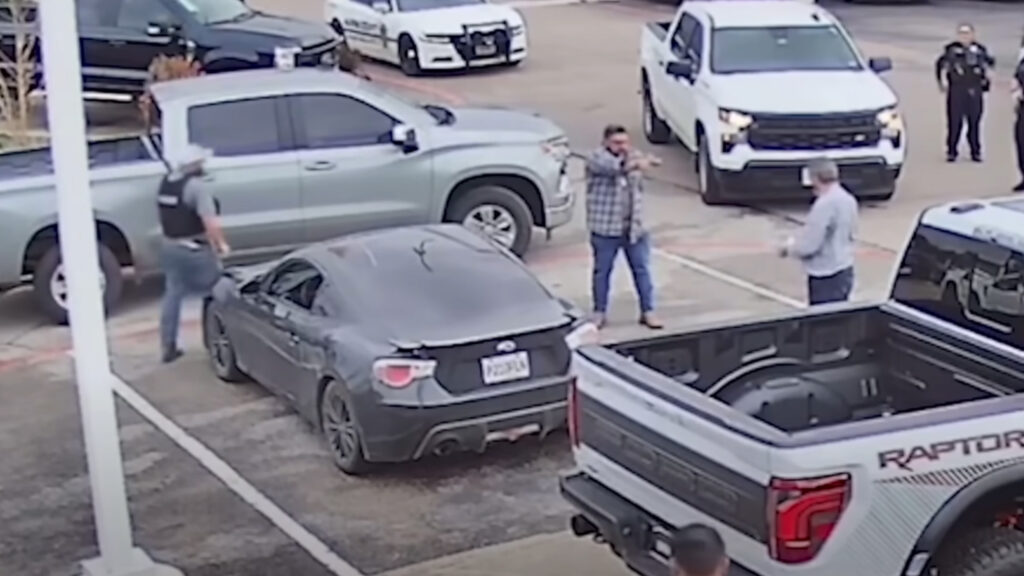- A Texas dealership caught a customer involved in a VIN-switching bust on camera.
- According to police investigators, the Subaru BRZ had plates from Guatemala on it.
- Criminals are using fake VINs to cover stolen vehicles, which are then resold online.
Authorities in Crosby, Texas, recently swooped on a customer at the Friendly Ford dealership after suspecting the Subaru BRZ he was driving was tied to a VIN-switching scheme. The dramatic bust was caught by the dealership’s security cameras and police are warning locals to thoroughly investigate the VIN of any vehicle that they intend to buy.
Limited details are known about the customer in question, but according to the dealership’s finance director, Rick Guzman, sales staff greeted the man when he arrived at the lot. Soon after, several undercover police officers appeared on the scene as part of an ongoing investigation into VIN-switching. The officers came from the Harris County Sheriff’s auto theft division and were joined by deputy constables from Precinct 3.
Read: Scammers Texting Fake Parking Tickets And Toll Charges, Don’t Fall For It
According to one of the investigating officers, the Subaru had been on their radar for some time. It had even been spotted with Guatemalan license plates, adding another layer of suspicion to the case.
Police say criminals have begun printing fake VINs and covering or replacing the original ones, typically located at the base of a car’s windshield. Many of these vehicles are stolen and then resold through social media platforms like Facebook Marketplace.
“They’re printing out fictitious VINs and just placing them over or replacing the VIN that came with that vehicle,” Sgt. Eduardo Rivera told KHOU 11 News late last week.
VIN switching, also known as VIN swapping, isn’t a new trick, but it remains a persistent problem, especially for stolen vehicles that thieves are looking to resell. Fake VINs can easily be made to look legitimate, making it essential for used car buyers to double-check and verify a vehicle’s history before making a purchase. It doesn’t matter if the car is worth $5,000 or $50,000—no one wants to find themselves behind the wheel of a stolen ride.



